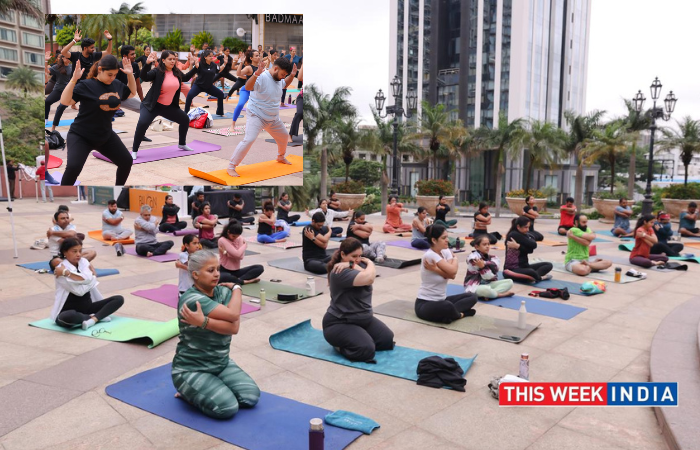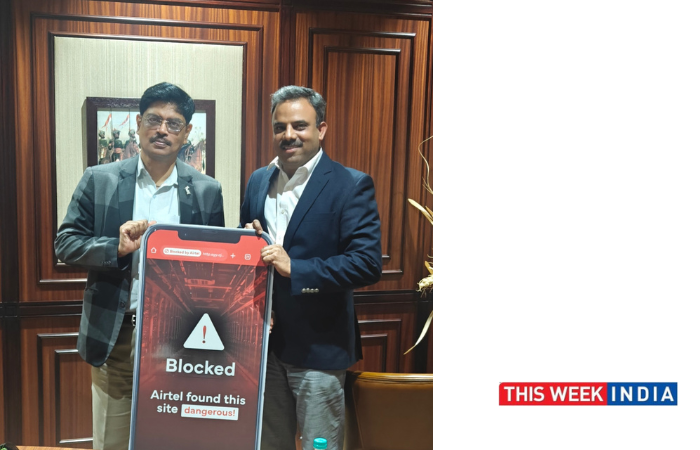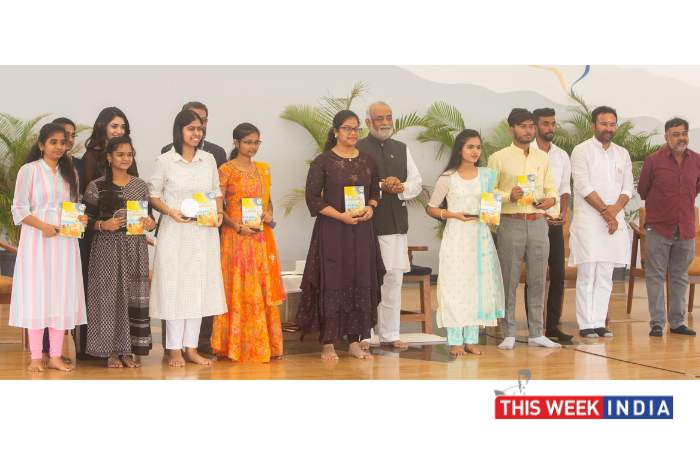National, 3rd June, 2021: India SME Forum, a non-governmental, non-political, non-trade union, not for profit organisation that works towards propelling small and medium businesses across the country, conducted a webinar to discuss how MSMEs that were gradually on their way to recovery from the economic shocks caused by the global pandemic, have now been caught off guard by the ongoing second wave. Eminent speakers like Mr. Vinod Kumar, President, India SME Forum, Mr. Ram Rastogi, Digital Payments Strategist, Shri Alok Shekhar, IAS Principal Secretary, Industries, Commerce & IT, Government of Punjab, Shri Anurag Pandey, IAS, Joint Secretary, Commerce & Industries, Government of Chhattisgarh, Shri Ranjeeth Kumar, IAS, Commissioner MSME, Government of Gujarat and Ms. Sairee Chahal, Founder & CEO, SHEROES, among others discussed the need for favourable policy support for MSMEs during such a difficult situation, as well as the importance of regular engagement between MSMEs and officials/ experts.
State-imposed restrictions on the home delivery of non-essential items have become of particular concern for the survival of MSMEs producing non-essential items. Learning from the first wave, it is important to support MSMEs in manufacturing both essential and non-essential items, and leveraging ecommerce to supply, distribute, and deliver all kinds of goods to customers. In line with this, there also rises the need to prioritize vaccination for home delivery associates.
According to a poll conducted by ISF with over 900 MSME members from 12 states including Delhi, Uttar Pradesh, Maharashtra, Tamil Nadu, Rajasthan, Karnataka, West Bengal, and others, revealed that while 90 percent of them wanted a complete national lockdown, 86 percent believed that home delivery of all products, essential or non-essential, should be allowed during national, regional, or local lockdowns as it allows MSMEs to continue their business and is also a contactless way for people to fulfill their requirements.
Recommendations that emerged from the webinar to support MSMEs during this time:
Online and ecommerce platforms need to become the preferred mode of shopping in India in the current times, as it is the safest option. It not only helps cater to consumer needs but also serves the purpose of the lockdown successfully by preventing people from stepping out and enabling a contact-less delivery at any time of the day
- The pandemic has created a faster need for adoption of digital channels by both buyers and sellers, in line with the government’s larger vision towards digital transformation, which makes home delivery of both essential and non-essential items a necessity for the survival of small businesses
- Reducing compliance (GST) burdens and registration norms, would go a long way in enabling MSMEs to digitize.
- State governments should treat home delivery personnel, including ecommerce delivery associates, as frontline workers and accord priority vaccinations for them. This will not only ensure their own safety but also the safety of customers, enabling them to contribute to the society as service providers and curb the COVID crisis.
- There is a need for standardised guidelines for MSMEs across the country to bring them back on track and enable them to seamlessly carry on business operations during this pandemic.
Mr. Vinod Kumar, Hon. President India SME Forum stressed that, “While it is necessary that we adhere to the state mandates being issued for public safety, genuine needs of the citizenry and efforts to enable MSMEs to create and sustain their livelihood during lockdowns must be registered. This would require the government to enable home delivery of all products in states with lockdown as a first step. The government must support MSMEs to at least operate in a contact-less or home delivery mode, as was recently announced by the Karnataka state government to include the delivery of all products through ecommerce and home delivery. In these trying times, ecommerce has emerged as a safe and effective way to fulfil the demands of people as well as provide MSMEs with a new lease at life. Keeping this in mind, it is essential to prioritize the vaccination of all personnel in frontend logistics and delivery roles across India, as was recently announced by the Punjab state government.”
Shri Alok Shekhar, IAS, Principal Secretary, Industries, Commerce & IT, Govt. of Punjab said, “Punjab allowed ecommerce activities to continue across the state as a part of essential activities. Despite that, industries were impacted by the second wave as Punjab is an MSME-dominated state with more than 2.6 lakh MSMEs. There needs to be harmony between public health requirements and the economy. What is required is for industries to adapt to new technologies in the new normal. MSMEs in Punjab have adapted across a number of industries and are able to perform despite lockdowns. Additionally, another area of priority should be vaccination. Punjab took the initiative to vaccinate close to 1 lakh industrial workers and there is a need to ramp that up to a great extent across other states as well.”
Shri Ranjeeth Kumar, IAS, Commissioner MSME, Govt. of Gujarat stressed, “Industries are facing a lot more operational difficulties this year as compared to last year. Gujarat enforced a partial lockdown for 10 hours during the night to ensure MSMEs did not face any difficulties. However, a business in one state is dependent on other states for their raw materials or markets. Therefore, we are motivating MSMEs to explore new avenues and opportunities through various initiatives and strive for diversification. We have initiated the MSME Act that enables entrepreneurs to start new businesses without any interference from the state government for upto 3 years. We also established the Industrial Policy 2020, designed to strengthen Gujarat’s MSME ecosystem by providing a wider scope to entrepreneurs for their businesses.”
Shri Anurag Pandey, IAS, Joint Secretary, Commerce & Industries, Govt. of Chhattisgarh highlighted, “Lockdowns shouldn’t be treated as a binary, technological advancements should be considered as alternatives given the changing environment. Based on our discussion with various local associations, we advised the MSMEs of Chhattisgarh to prioritize customer engagement and human resource planning in order to maintain their relationships with customers and source the labour force from within the state itself. Along the same lines, the Government of Chhattisgarh created awareness on the importance of stakeholder engagement and financial planning to manage recession, loans, and advance arrangements for MSMEs.”
Mr. Ram Rastogi, Digital Payments Strategist, stated, “There is an urgent need for startups and MSMEs to leverage online and ecommerce platforms not only to aid the delivery of goods but also from a supply chain perspective. We need guidelines from states that promote digitisation and encourage MSMEs to go online. Permitting home delivery of all items will be a significant step in this direction and should be a standard protocol followed by states to sustain livelihoods of businesses and serve customer needs during such challenging times. Moreover, adoption of digital payments will also become crucial to help MSMEs who are severely impacted due to their dependency on offline business models. This is especially true for times like this where offline and physical sourcing is not possible like before. If India faces another wave of the pandemic, ecommerce should be treated as essential and home delivery should be enabled by all states for the benefit of small businesses and the economy.”









